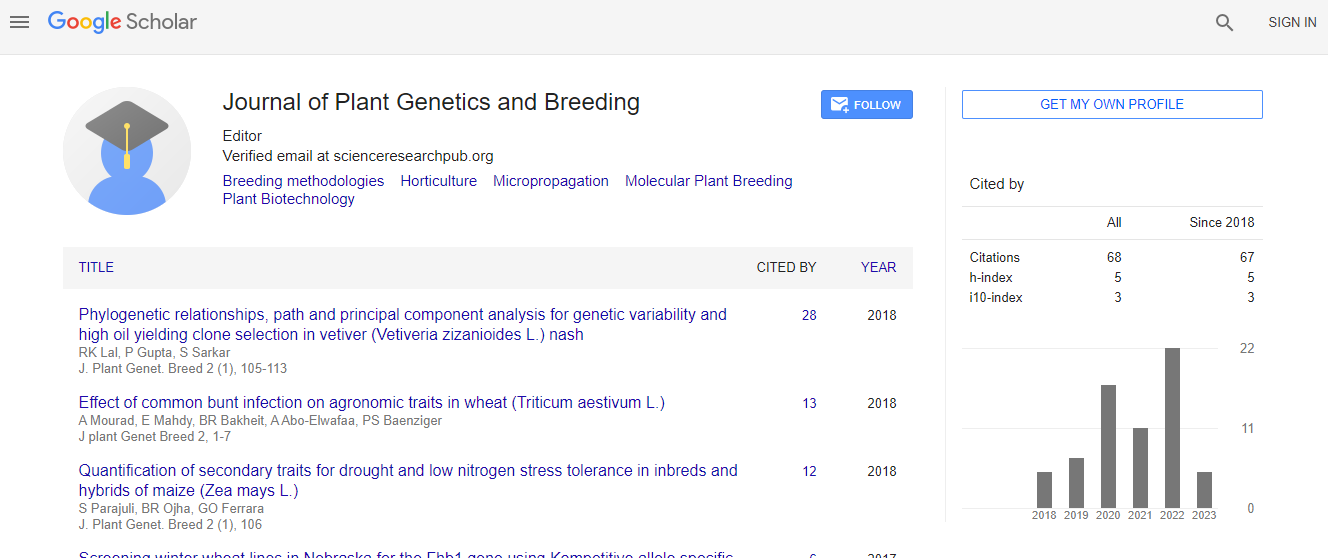Genotype x Environment Interactions for Seed Yield and Physiological Traits in Sesame (Sesamum indicum L.) for Food Security under Climate Resilience
*Corresponding Author: Anju Nehra, Departments of Genetics, Sri Karan Narendra Agriculture University, Udaipur, Rajasthan, India, Tel: 8989981877, Email: anju.pbg20@gmail.comReceived Date: Jul 29, 2022 / Published Date: Jan 17, 2023
Citation: Nehra A, Gothwal DK, Jeeterwal RC, Jakhar ML, Punia SS, et al. (2023) Genotype x Environment Interactions for Seed Yield and Physiological Traits in Sesame (Sesamum indicum L.) for Food Security under Climate Resilience. J Plant Genet Breed 7:135
Copyright: © 2023 Nehra A, et al. This is an openaccess article distributed under the terms of the Creative Commons Attribution License, which permits unrestricted use, distribution and reproduction in any medium, provided the original author and source are credited.
Abstract
Study of genotype x environment interaction of ten parents along with their 45 F1 progenies were evaluated in a randomized block design with three replications during summer kharif 2020-2021 under three different environmental conditions viz., normal, late and extreme late sowing for yield and its attributes. The stability analysis for yield and yield attributes was carried out as per model of Eberhart and Russell for knowing causes of stability. Genotype x environment interaction was significant for all the traits under study. On basis of stability analysis, parents TKG-22, GT-10 and RT-351 and crosses TKG-22 x GT-10, RT-372 x RT-103, TC-25 x RT-46, TC-25 x RT-46, RT-103 x GT-10 exhibited stable performance for seed yield per plant in different environmental conditions. On the other hand, crosses RT-346 x TKG-22, RT-346 x RT-351, TKG-22 x RT-372, TKG-22 x TC-25 and RT-372 x RT-351 indicated its suitability and stability under better environmental conditions. These crosses could be utilized as a promising breeding material for the development of new set of sesame varieties.

 Spanish
Spanish  Chinese
Chinese  Russian
Russian  German
German  French
French  Japanese
Japanese  Portuguese
Portuguese  Hindi
Hindi 